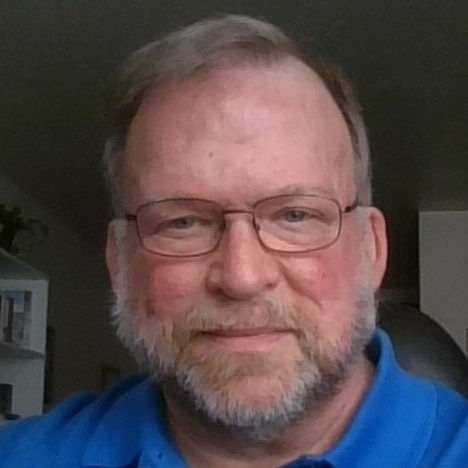Dan Keusal, M.S., LMFT
Jungian Psychotherapy for Individuals & Couples
"Find Your Purpose, Heal Your Pain, Live With Passion"
| Receive my email newsletter! |
Dan Keusal's e-newsletter
Autumn 2022 edition:
Celebrating 30 years, and...
"Room At The Table"
(to get my newsletters delivered directly to your email inbox,
join my mailing list!)
Greetings...
David Whyte once wrote: "To feel that what we do is right for ourselves and good for the world at exactly the same time is one of the great triumphs of human existence." This autumn marks 30 years since I opened my psychotherapy practice, 30 years of seeking to integrate vocation and service. I want to thank all those who have referred clients, all those colleagues who have offered wisdom and support along the way, and especially the thousands of clients who have trusted me with their suffering, their seeking, and their hope for lives of depth and meaning.
Take good care.
~Dan
* * * * *
Reflections: “Room At The Table"
Thirty years before Harry Potter burst onto the scene, Ursula Le Guin’s novel A Wizard of Earthsea told the story of young Ged, who was seen to be potentially gifted and so is sent to The School For Wizards on the isle of Roke.
On his first day, he is brought to the single, long table in the dining hall, where an older classmate tells him “They say that no matter how many sit at this table, there is always room.”
Making room at the table for others—inner others and outer others—remains an urgent task in these troubled times.
I often tell clients to picture a large round table, at which there is room for all their inner parts—the gracious part, the stingy, the violent, the tender, the angry, the curious, the close-minded, the grieving, the joyous, the confused, the aged, the childish, the cautious, the bold, the fearful, the introverted and the extroverted, or those parts that seem merely “different.”
Rather than labeling some parts “good” and others “bad,” I invite them to give every part a chance to have its say, as if this gathering were a council of their inner selves, and that from the integration of all these voices, a mature, conscious whole may emerge. This process is something that Jung emphasized in his approach to the human condition—the importance of striving for wholeness and integration, rather than perfection.
This process is mirrored in the dreams we have at night—dreams in which unexpected characters often appear: a tangential co-worker, a distant cousin, a long-forgotten friend from elementary school, even strange, “dark,” unfamiliar figures that may evoke responses ranging from intrigue to terror.
As Rumi says “Welcome and entertain them all…Be grateful for whoever comes, because each has been sent as a guide from above.”
We need the wisdom of each of these guides, both individually and collectively—and there is a connection between the two.
Individually…When we deny the “other,” we wind up projecting them—onto partners or spouses, neighbors, family members, friends, workers, or even the strangers we encounter while driving in traffic. By projection, I mean that we attribute to others those parts of ourselves we have disowned or banished, parts we have yet to acknowledge or enter into relationship with, to integrate. And so, we react to others—with fear, or anger, or distrust—instead of sitting down with the inner council and hearing what they have to say.
Collectively…When we have banished from the table those aspects of our own family, race, political party, or nation, we again project shadow qualities onto other families, races, parties, or nations. All the way back in 1928, Jung wrote this: “The psychology of war has clearly brought this condition to light: everything which our own nation does is good, everything which other nations do is wicked. The centre of all that is mean and vile is always to be found several miles beyond the enemy’s lines.”
Recent history shows that Jung’s words are as true today as they were nearly a century ago. When we fail to acknowledge our collective shadow, we wind up electing to political office those who mirror this shadow in their individual lives (and in our own)—those who have failed to make room at the table for their own sad, wounded, vulnerable inner selves. This results in these so-called leaders launching attacks on those whose different-ness is seen as a threat—other genders, races, political parties, or nations. All good is “here,” all evil is there, “several miles beyond the enemy’s lines.”
Where do look for relief from this seemingly endless cycle of denial, fear, and projection?
As is so often the case, one source of an alternate vision can be found in the arts, where the voice of the individual and collective unconscious often emerges. In his book The Re-Enchantment of Everyday Life, Thomas Moore reminds us:
“...the arts offer us a way through our predicaments with the tempered light of imagination instead of the blazing lamp of enlightenment...The arts provide a viewpoint fundamentally different from the one that shapes modern psychology….Through the artistic imagination, we are liberated more by entering into our experiences than by being led out of them.”
For decades, the songs of Carrie Newcomer have radiated this “tempered light of imagination.” Her anthem “Room At The Table” offers a vision of a world where we welcome the inner and outer “others” instead of projecting them:
Let our hearts not be hardened to those living on the margins
There is room at the table for everyone
This is where it all begins this is how we gather in
There is room at the table for everyone
Make room at your table. Sit down at council with all the others. Stand firm for justice, but be wary of the contempt that often hides projections of those individually and collectively disowned selves.
Resources For A Life Of Depth And Meaning:
(poetry): "Poetry of Presence: An Anthology of Mindfulness Poems." A dear friend gave me this book as a gift for my 60th birthday. In the weeks that followed, we began a shared practice: each morning, in a spirit of trust and welcome, we would open the book to a 'random' page, read the poem we found there, and then text each other with our thoughts about how that poem spoke to us. Includes selections from a wide range of poets, from ancient to contemporary, from Rumi to Mary Oliver.
(video): "Taking Your Dreams Seriously" (James Hollis). In a little more than 6 minutes, James Hollis, author of many books and one of the most respected elders in the American Jungian community, speaks eloquently to where dreams come from and what they might mean. He addresses those who say "I don't dream" or "I don't remember my drams," discusses how similar images can mean very different things in the dreams of different people, and looks at how "aspects of dreams are aspects of ourselves."
(photo): "Falling Together." Taken just a few feet from the entrance to my office, this photo, in addition to showcasing the beauty of autumn, hints at other layers of symbolism--the 'falling' and letting go that is at the heart of the season, and the many in the one depicted in the form taken by this tree's trunk or branches.
Dan Keusal, M.S., LMFT, Psychotherapist. (206) 523-1340. Email: dankeusal@dankeusal.com

